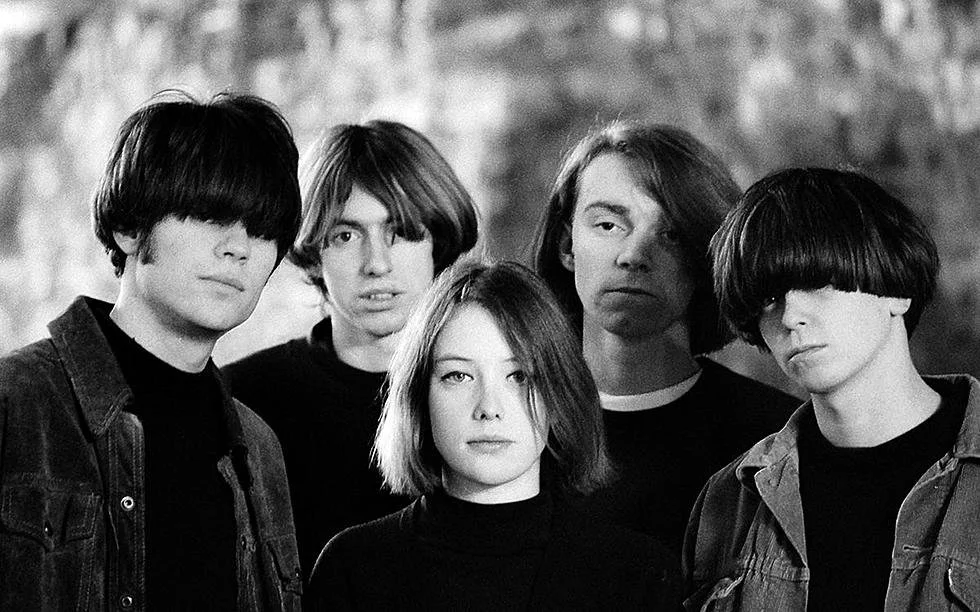A Love Letter to Souvlaki by Slowdive
On June 1, 1993, Slowdive released Souvlaki. Though at the time it was received rather poorly and to little celebration, it has grown to become one of the most celebrated shoegaze albums of all time. It is melancholic, ethereal, and truly unlike any album before it. It is also one of my favorite albums and one that I return to regularly, each time picking up a slightly different layer to the sounds or a meaning behind them.
Souvlaki was Slowdive’s second studio album and was created right at the conclusion of the romantic relationship between Neil Halstead and Rachel Goswell, co-guitarists and vocalists in the band. While under immense pressure from their label to produce an acclaimed release despite the looming downfall of shoegaze amidst the rise of Britpop and grunge, the band set out to write their sophomore album. The initial album was recorded over the course of six weeks and was then entirely thrown away due to the feedback of their management. During the process of re-recording, Brian Eno was brought on board as a producer and collaborator. Halstead and Eno together created the tracks “Sing” and “Here She Comes,” from which point onward Halstead decided to pursue a more ambient direction with the album. Ironically, Halstead at the time had no idea that Eno was truly the godfather of ambient music, perhaps allowing for an unexpectedly organic product. In the summer of 1992, the band’s manager suggested Halstead stay at his Welsh cottage in order to clear his head from the breakup and re-enter the songwriting process. Halstead spent two weeks of that summer with a 4-track recorder in semi-isolation. When he returned to the studio, he recorded “Dagger,” “Machine Gun” and “40 Days,” all of which contain references to his relationship with Goswell and his experience living in Whales briefly.
The end result of this process is a collection of songs that each stand on their own as complete explorations of idealized young love and the loss thereof, as well the pain that accompany both. Amongst my favorite songs off the album is “Alison,” which Halstead wrote about a relationship he was in after his breakup with Goswell. The lyrics, “‘Allison,’ I said, ‘We’re sinking’ / But she laughs and tells me it’s just fine / I guess she’s out there somewhere” illustrates the ability for youthful love to lift the burden and stresses of the world at large while also maintaining a sense of longing and incompletion. The guitar track of the song is bright and uplifting, conveying the bliss of such love despite the anxieties that might accompany it. This song in particular conveys the fear of falling out of love that can come with simply being in love and the anxiety of an anticipated end amidst purely joyous, adolescent memories. “When the Sun Hits” is by far the most famous song off the record and for good reason. The song’s lyrics explore similar themes as “Alison” with the lyrics, “Sweet thing, I watch you / Burn so fast it scares me,” possibly alluding to Halstead’s feelings that he loved too deeply, or perhaps that the person he is in love with will do the same.
My personal favorite song off the album is “Dagger” due to the unique rawness of the track. The song consists mainly of Halstead’s voice and guitar with only some light accompaniments added. The lyrics read, “The sunshine girl is sleeping / She falls and dreams alone / And me I am her dagger / Too numb to feel her pain.” I think “Dagger” speaks to a common but largely unspoken experience of romantic love: feeling inadequate as a partner or lover due to the pain one carries that could hurt another who does not possess such wounds. Whereas “Alison” and “When the Sun Hits” speak to contemplation of the sustainability and passion of the relationship at hand, “Dagger” takes a more internalized view as Halstead contemplates his own potentially detrimental role in the relationship, potentially that of him and Goswell.
Yet, if I am being honest, my favorite song off Souvlaki changes weekly. What makes this record so extraordinary is the fact that it is ever changing in the mind of the listener; every time I listen to its entirety, I notice different sounds, fragments, lyrics and moments that strike me as being particularly poignant and relatable. The lush soundscape within each track makes Souvlaki an album worth actively listening to, but also one that can serve as calming background music as well. The position of the vocals in the mix such that they are just barely covered by the instrumentals adds a degree of intrigue to the listener, as they are both audible enough to be consciously heard but soft enough to be completely overlooked without paying such attention. Thus, Souvlaki is almost like multiple albums in one, each one soft, melancholic, dreamlike and absolutely beautiful. As I find myself a few months out from a recent breakup and thinking about what I want in a future relationship, I am discovering more and more meanings in Souvlaki than I had previously. At times, it truly feels like Halstead can read my thoughts and capture my fear of loneliness and desire for connection; there is comfort in knowing others have been through it too and have been able to make something beautiful in the remains of what was.
